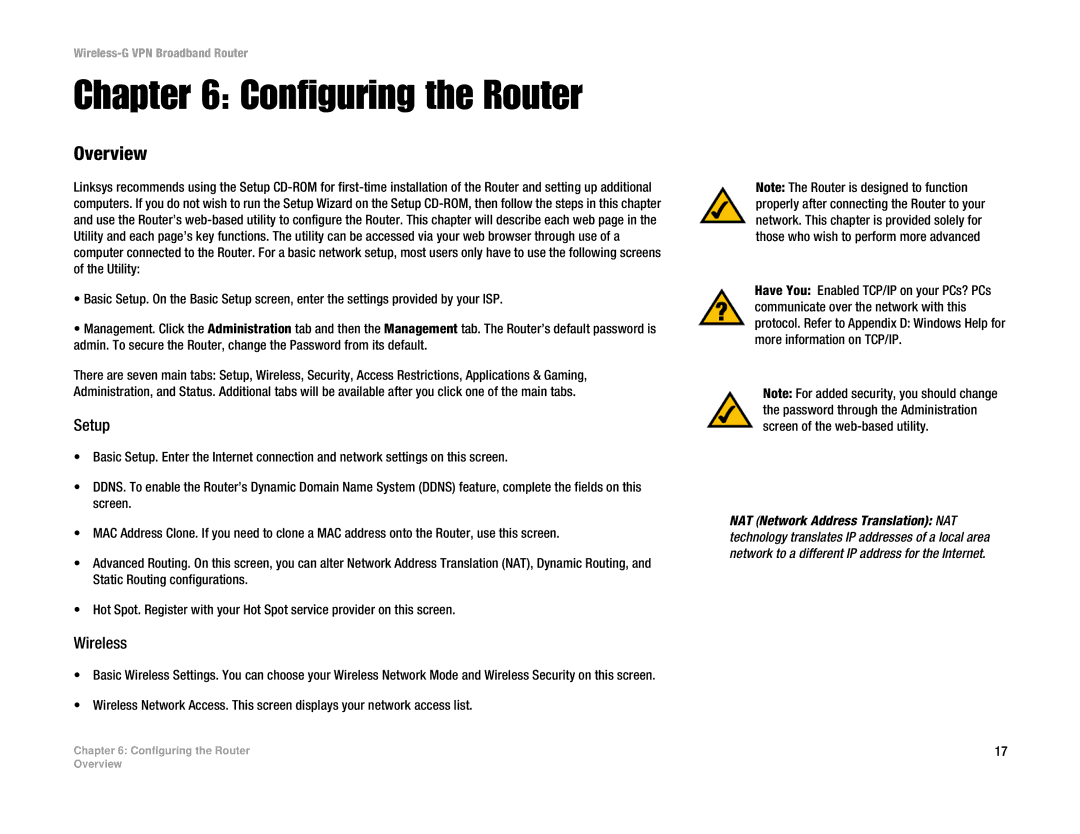
Wireless-G VPN Broadband Router
Chapter 6: Configuring the Router
Overview
Linksys recommends using the Setup
•Basic Setup. On the Basic Setup screen, enter the settings provided by your ISP.
•Management. Click the Administration tab and then the Management tab. The Router’s default password is admin. To secure the Router, change the Password from its default.
There are seven main tabs: Setup, Wireless, Security, Access Restrictions, Applications & Gaming, Administration, and Status. Additional tabs will be available after you click one of the main tabs.
Setup
•Basic Setup. Enter the Internet connection and network settings on this screen.
•DDNS. To enable the Router’s Dynamic Domain Name System (DDNS) feature, complete the fields on this screen.
•MAC Address Clone. If you need to clone a MAC address onto the Router, use this screen.
•Advanced Routing. On this screen, you can alter Network Address Translation (NAT), Dynamic Routing, and Static Routing configurations.
•Hot Spot. Register with your Hot Spot service provider on this screen.
Wireless
•Basic Wireless Settings. You can choose your Wireless Network Mode and Wireless Security on this screen.
•Wireless Network Access. This screen displays your network access list.
Chapter 6: Configuring the Router
Note: The Router is designed to function properly after connecting the Router to your network. This chapter is provided solely for those who wish to perform more advanced
Have You: Enabled TCP/IP on your PCs? PCs communicate over the network with this protocol. Refer to Appendix D: Windows Help for more information on TCP/IP.
Note: For added security, you should change the password through the Administration screen of the
NAT (Network Address Translation): NAT technology translates IP addresses of a local area network to a different IP address for the Internet.
17
Overview
